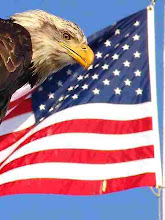It was a long awaited weekend, the 4th, relaxing and BBQing, just with fewer people than usual since I avoid crowds now, but it wasn't as peaceful as I expected. The noise levels bothered me more this year than any other year, as I remember them. But now it's over, so back to writing this blog.
As with almost everything, all people will effect other people somewhere down the line. You have second hand smoke, people who do not smoke but still suffer from cancer due to others who do smoke around them. With PTSD, the close relationships, or what is left of them, of the spouse, the family, the friends, and even the workforce around the vet who suffers PTSD, can be effected. This is called "Secondary Traumatic Stress Disorder", or STSD, and in some terminology it will be referred to as "Compassion Fatigue".
Because of all the symptoms experienced and exhibited by the vet, and the loss of trust shown, those close to the vet or involved with the vet's life in some way, may begin to exhibit symptoms similar to those of the vet. This is particularly true with the vet's children, or others who were not around during the time span that the trauma was experienced by the vet, and are not familar with the vet's past experiences first hand. Children of combat vets who have PTSD, have been known to display or exhibit impaired self-esteem, hyperactivity, poor reality testing, and aggressive behavior. Coping deficiencies or difficulty with guilt, fear, rage, and feelings of mistrust are also not uncommon. It's considered a form of "referred pain", passed on by the traumatized person.
The symptoms of STS may be so familar to those who are involved, because of close ties to the vet with PTSD, and yet feel so strange and unexpected. The family member, peer, health caregiver, anyone associated with the veteran diagnosed with PTS may need perspective and support as well. As with PTS, awareness that they may suffer from the symptoms of STS, is an important step. For some, recognition brings about understanding and reframing of one's world. For others, seeking treatment of some kind is not only recommended, but much needed after having supported the veteran with PTSD for some time. This can move the entire family unit to a greater health and wellbeing. Untreated STSD may lead to more extreme reactions and eventual development of more cronic symptoms and an actual PTS diagnosis as well.
Any and all of the "common characteristics" and symptoms associated with PTSD may be displayed by the person suffering from STS on some level. Anyone suffering from STSD must realize that there is support and treatment available for themselves, ask your private health provider for more information.
Remember this:
You deserve to heal just as the vet in your life has deserved your support and encouragement. Healing is a goal for one and all. The best outcome is a total healing of the family unit. This goal is reachable with time.
That just about covers the basics of PTSD and the combat vet. Next I'll start discussing the medications, side effects and experiences that I have personally been going through with the WPB VAMC and Lake Worth Vet Center.
Following the blog's content and postings.
I can not figure out how to get the posts to show in order of writing. Please use the archive list to start or continue at a point that chronologicly makes more sense than reading everything from latest to earliest, or backwards. The PTSD posts begin on 5/29/09
Tuesday, July 7, 2009
Subscribe to:
Comments (Atom)


